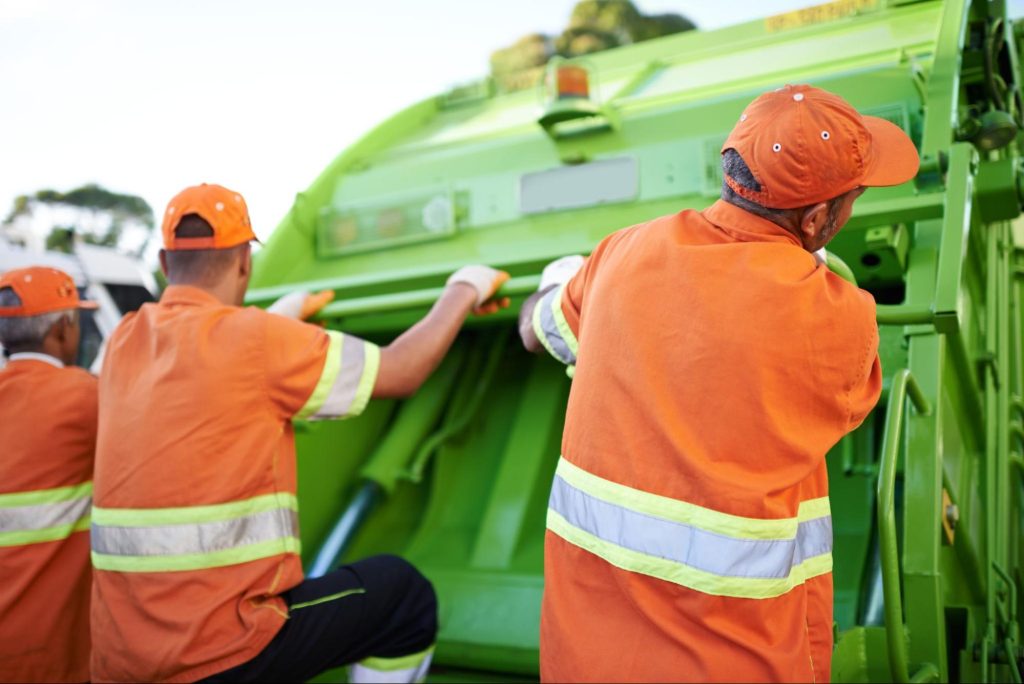
Innovative Solutions for Municipal Solid Waste Management
Municipal solid waste management is a critical challenge facing urban areas worldwide. As populations grow and consumption patterns evolve, the volume of waste generated continues to increase, putting immense pressure on existing waste management systems. Environmental issues and space constraints are making traditional waste disposal techniques like landfilling and incineration less and less feasible. As a result, local governments and cities are looking for creative ways to manage solid waste more efficiently and sustainably.
Reading this article will guide you in exploring some of the most promising and cutting-edge approaches to municipal solid waste management, highlighting technologies and strategies that are helping to transform waste into valuable resources while minimizing environmental impact.
Key Challenges in Municipal Solid Waste Management
Urban areas worldwide must address the crucial problem of municipal solid waste management to maintain public health and sustainable development. Municipalities face enormous challenges due to the volume and complexity of waste generated as cities grow and populations rise. Here are the known challenges:
Increasing Waste Volumes
Growing urban populations generate more waste, which is one of the biggest problems municipalities have to deal with. This waste surge severely stretches the current waste management infrastructure, which has a more significant negative impact on the environment, overflowing landfills, and higher collection costs. Municipalities must invest in the modernization and expansion of their waste management facilities and implement policies that promote recycling and waste reduction.
Inadequate Infrastructure
Many municipalities need more infrastructure for managing waste, including inadequate collection services, antiquated processing facilities, and limited landfill space. This lack of infrastructure can lead to inefficient waste collection, higher operational costs, and environmental pollution. Improving infrastructure requires significant investment in modern waste processing technologies, expanding recycling programs, and developing new landfills or waste-to-energy plants.
Limited Public Awareness and Participation
Effective waste management relies heavily on public participation, yet many municipalities need help engaging residents and encouraging proper waste disposal practices. Limited public awareness about recycling, composting, and waste reduction can result in contamination of recyclable materials and improper disposal of hazardous waste. Comprehensive outreach and education initiatives must be put in place by municipalities to increase public awareness and promote involvement in waste management initiatives.
Financial Constraints
Municipal waste management systems often operate under tight budget constraints, making funding improvements and expansions difficult. The high costs associated with modernizing infrastructure, implementing advanced technologies, and maintaining efficient collection services can strain municipal budgets. Exploring alternative funding sources, such as public-private partnerships and grants, can help municipalities secure the financial resources needed for effective waste management.
Regulatory and Policy Challenges
Navigating the complicated web of waste management laws and policies can be challenging for municipalities. Clear regulations, a lack of enforcement, and policies that change quickly can improve the implementation of efficient waste management strategies. Municipalities must work closely with regional and national governments to develop consistent rules and policies supporting sustainable waste management practices.
Environmental and Health Concerns
Improper waste management poses significant environmental and health risks, including air and water pollution, greenhouse gas emissions, and the spread of disease. Landfills can release harmful chemicals into the soil and groundwater, while incineration without proper controls can produce toxic emissions. Municipalities must mitigate these risks by implementing environmentally friendly waste management techniques, like waste-to-energy technologies, advanced recycling, and strict regulations.
Managing Diverse Waste Streams
Municipalities manage a wide variety of waste streams, including household waste, industrial waste, hazardous waste, and electronic waste. Each type of waste requires different handling, processing, and disposal methods, adding complexity to waste management operations. Developing specialized programs and facilities for various waste streams can help municipalities manage waste more effectively and ensure proper disposal.
Municipal solid waste management presents numerous challenges, from increasing waste volumes and inadequate infrastructure to financial constraints and environmental concerns. Addressing these challenges requires a multifaceted approach that includes investing in infrastructure, raising public awareness, securing funding, and implementing clear regulations. By tackling these obstacles head-on, municipalities can create more efficient and sustainable waste management systems that protect the environment and enhance the quality of life for urban residents.

Five Strategies for Effective Waste Management in Cities
Effective waste management is essential for the health and sustainability of urban environments. As cities grow, the complexity of managing the waste generated by their populations increases. Innovative strategies are required to handle this increasing volume of waste while minimizing environmental impact and promoting resource recovery. Here are the practical methods that align with modern waste management.
1. Implementing Comprehensive Recycling Programs
Comprehensive recycling programs are a cornerstone of effective waste management. Cities need to develop systems that make it easy and convenient for residents to recycle a wide range of materials, including paper, plastics, glass, and metals. These systems include ensuring enough recycling bins are available, educating the public about what can be recycled, and having reliable facilities to process the collected recyclables. By removing recyclables from landfills, cities can dramatically cut waste production and save precious resources.
2. Promoting Waste Reduction Initiatives
Waste reduction is a proactive strategy that reduces waste production from the source. By running public awareness campaigns, cities can encourage citizens and businesses to adopt reusable products, reduce packaging, and avoid single-use items. Implementing policies that incentivize waste reduction, such as pay-as-you-throw programs where residents are charged based on the amount of waste they produce, can also be effective.
3. Investing in Advanced Waste-to-Energy Technologies
Waste-to-energy (WTE) technologies offer a way to convert non-recyclable waste into energy, reducing the volume of waste sent to landfills while generating renewable energy. Modern WTE facilities use advanced processes like gasification, pyrolysis, and anaerobic digestion to efficiently and cleanly convert waste into electricity, heat, or fuel. By investing in these technologies, cities can manage their waste more effectively and contribute to their energy needs.
4. Developing Smart Waste Management Systems
Smart waste management systems leverage technology to optimize waste collection, transportation, and processing. This system includes using sensors and data analytics to monitor waste levels in real-time, enabling more efficient waste collection scheduling and reducing unnecessary trips. Smart bins with sensors can alert waste management services when full, ensuring timely collection and preventing overflow. These systems can lead to cost savings, improved service quality, and reduced environmental impact.
5. Enhancing Public-Private Partnerships
Public-private partnerships (PPPs) can be crucial in improving waste management systems. Municipalities can access additional resources, expertise, and innovative technologies by collaborating with private sector companies.PPPs can facilitate the development of modern waste processing facilities, enhance recycling programs, and improve overall service delivery. Successful partnerships require clear agreements, shared goals, and effective communication between public and private stakeholders.
By implementing these five strategies—comprehensive recycling programs, waste reduction initiatives, advanced waste-to-energy technologies, smart waste management systems, and public-private partnerships—cities can significantly improve their waste management practices. These strategies support resource conservation, energy production, and environmental sustainability and address the problems associated with rising waste volumes. As city planners and policymakers, your role in implementing these strategies is crucial. You can shape greener, more sustainable futures for our cities.

Benefits of Adopting Innovative Waste Management Solutions
Managing municipal solid waste becomes increasingly complex as urban areas expand and populations grow. Traditional waste management methods often need to be revised to handle the sheer volume and variety of waste produced in modern cities. Innovative waste management solutions offer various benefits beyond mere disposal, addressing environmental, economic, and social concerns. This article explores eight key benefits of adopting innovative waste management solutions.
Reducing Environmental Impact
Innovative waste management solutions significantly reduce the environmental impact of waste disposal. Minimizing the quantity of waste in landfills, recycling, composting, and waste-to-energy conversion help lower greenhouse gas emissions and soil and water pollution. These techniques promote a healthier earth and aid in the preservation of ecosystems.
Conserving Natural Resources
By promoting recycling and the recovery of materials, innovative waste management solutions help conserve natural resources. Recycled materials reduce the need for raw material extraction, lowering the environmental damage associated with mining, deforestation, and water use. This conservation effort is critical for sustaining natural resources for future generations.
Generating Renewable Energy
Waste-to-energy technologies convert non-recyclable waste into usable forms of energy, such as electricity, heat, and fuel. This procedure produces a renewable energy source and reduces the amount of waste in landfills. Cities can lessen their dependency on fossil fuels while meeting their energy needs by using waste as a resource for energy generation.
Creating Economic Opportunities
Adopting innovative waste management solutions can create numerous economic opportunities. The recycling industry, waste-to-energy plants, and composting facilities generate jobs and stimulate economic growth. Additionally, the production of recycled materials can lead to the development of new markets and industries, further boosting local economies.
Improving Public Health
Effective waste management reduces the risks associated with improper waste disposal, such as air and water pollution, which can have severe health impacts on communities. By adopting advanced waste management practices, cities can mitigate these health risks and provide residents with a cleaner environment.
Enhancing Community Engagement
Innovative waste management solutions often involve public education and community participation. Municipalities can foster a sense of community responsibility and environmental stewardship by engaging residents in recycling programs, composting initiatives, and waste reduction efforts. Educated and engaged communities are more likely to support and sustain waste management efforts.
Increasing Efficiency and Reducing Costs
Cutting-edge waste management technologies and procedures can improve the efficiency of waste collection, transportation, and processing. For instance, intelligent waste management systems minimize fuel consumption and operating expenses by streamlining waste collection routes and schedules. As a result, towns and taxpayers save money.
Supporting Sustainable Development Goals
Innovative waste management solutions align with several United Nations Sustainable Development Goals (SDGs), including clean water and sanitation, affordable and clean energy, sustainable cities and communities, and responsible consumption and production. By adopting these solutions, cities can contribute to global efforts to achieve these goals and create a more sustainable future.
Beyond eliminating waste, innovative waste management solutions have many other advantages. These solutions are essential to advancing sustainable urban development, from lessening the environmental impact and protecting natural resources to producing renewable energy and fostering economic growth. By embracing advanced waste management practices, cities can improve public health, enhance community engagement, increase operational efficiency, and support global sustainability goals. The future of waste management lies in innovation, and the benefits are clear for communities and the planet alike.
Revolutionizing Municipal Solid Waste Management
Creating sustainable and livable urban environments requires a municipal solid waste management revolution. Local governments can tackle the intricate problems associated with waste management by adopting cutting-edge technologies, making infrastructure investments, encouraging public engagement, and implementing comprehensive policies. These advancements reduce environmental impact, conserve resources, and enhance public health and economic vitality. Adopting innovative waste management techniques as cities expand will guarantee a cleaner, greener future for all urban dwellers.
Visit the Top Dog Waste Solutions blog today and stay ahead with the best plumbing care.